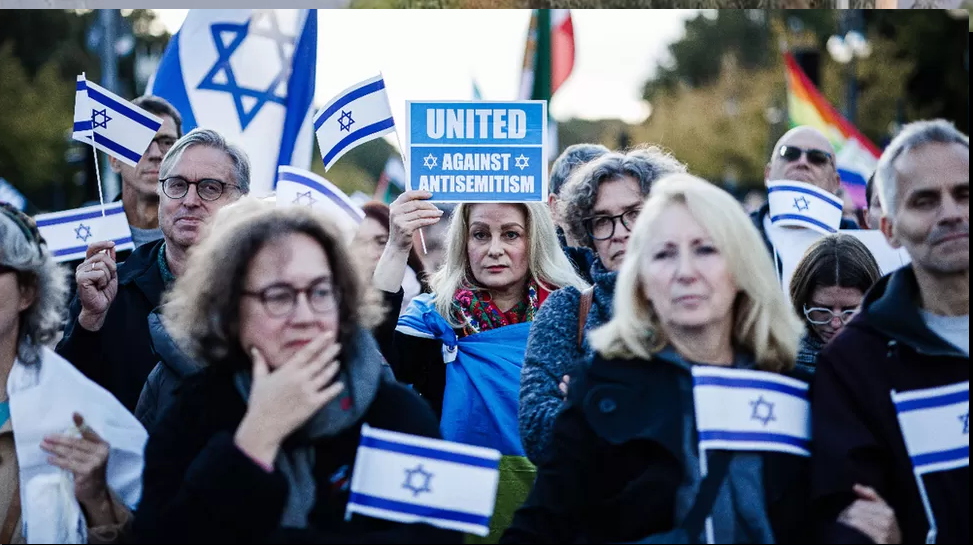Jewish fears as German support for Israel is challenged on streets

(BBC) Chancellor Olaf Scholz says he's "ashamed and outraged" at recent antisemitic attacks in Germany.
(BBC) Chancellor Olaf Scholz says he's "ashamed and outraged" at recent antisemitic attacks in Germany. He was speaking at an event to mark the anniversary of the November pogroms of 1938, sometimes known as "Kristallnacht."
Berlin's staunch diplomatic support for Israel is often described as a matter of historic responsibility.
But, as fighting continues between Israel and Hamas, social discord is emerging in Germany.
I meet a woman called Noa at a Berlin synagogue where she tells me how she has family who survived the Holocaust by hiding in Poland.
Some Jewish people in today's Germany, she says, are now hiding their identity.
"It's scary. Why should I live and be afraid of who I am?"
Aaron doesn't feel comfortable showing items traditionally worn by Jewish men in public, either his kippah or his tzitzit, the tassels of his prayer shawl.
Having fled the war in Ukraine, he believes Berlin is unsafe because "a lot of people support terrorist organisations".
Fears about a rise in antisemitism, since the outbreak of hostilities between Hamas and Israel, are widespread across Europe.
For Germany, incidents such as two petrol bombs being thrown towards a Berlin synagogue in October spark acute anxiety due to the nation's Nazi past.
Cases of antisemitism were, according to preliminary police figures, already on the rise this year before the Hamas attacks - the majority committed by the far right.Since 7 October, senior politicians have urged people, particularly from parts of the political left and Muslim backgrounds, to distance themselves from the actions of Hamas.
Israel's security is a fundamental cornerstone of German foreign policy with the former chancellor, Angela Merkel, declaring it to be a Staatsräson - reason of state - in 2008.
On a recent visit to Israel, Olaf Scholz said: "In such difficult times there is only one place we can be: at Israel's side."
But Germany's state doctrine is being visibly challenged on the streets of cities like Berlin.
"Your staatsräson sucks!" read one placard at a recent pro-Palestinian demonstration.
This march was permitted to take place whereas many have been banned.
Nadim Jarrar, who attended the 9,000-strong demo, tells me he's frustrated by the "one-sided" narrative.
Half-German, half-Palestinian - he thinks Germany must be more prepared to talk about the actions of Israel.
"It's a healthy process for every nation to get criticised and to have a discussion about what's going on."
Any German discomfort with that debate, he believes, cannot lead to shutting it down.